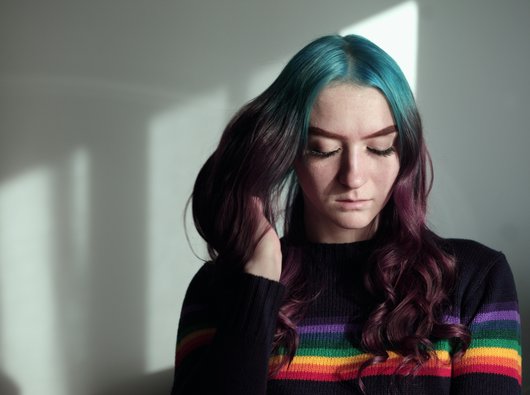Treatment centres and your team
As a young adult, you'll be treated by people who are trained to treat blood cancer in adults under 25. This page contains information about what this might look like for you, and where you'll go to have treatment.
If you're aged 19-24
If you're aged 19-24, you should have a choice of where you’re treated. You can choose between your nearest specialist TYA (teenagers and young adults) unit, or the adult cancer service at a hospital which is approved to treat young adults.
Find out more about each option in the videos below.
Choosing a specialist TYA unit
In this video, Emily talks about why she chose to be treated at a specialist unit for teenagers and young adults (called a TYA unit):
Choosing your local hospital
If you don't want to be treated at a specialist TYA (teenagers and young adults) unit, you can choose to go to your local hospital instead. In this video, Hinna explains the reasons behind her decision to do that:
If you're aged 16-18
If you're aged 16-18, you should be treated at a hospital that specialises in treating young adults with cancer. The unit where you’ll be treated is called a TYA (teenagers and young adults) unit, or young people’s unit.
The Teenage Cancer Trust has some more information about TYA units across the UK.
Some hospitals can also provide treatment for young adults within their adult services. The Children & Young People's Cancer Association has a list of designated hospitals where this is possible.
Questions to ask about treatment centres
Here are some questions to think about if you have a choice about where you’re treated. You might want discuss them with your family, doctor or nurse.
Will I need to stay in hospital for treatment?
- Will it be easy for people to visit me?
- What are the visiting hours?
Will I be treated as an outpatient (no overnight stays)?
- How will I get to my appointments?
- Is there someone to drive me?
- Is it safe for me to travel by public transport?
- Can I get financial support for travel?
How old will the other patients be?
- How do I feel about being treated with older people?
- Would I prefer to be treated with people my age?
What's the treatment centre like?
- Does it have free Wi-Fi?
- Can I watch TV or play games there?
- Will I be able to meet other people my age who have cancer?
What services does it offer?
- Are there youth support workers?
- Do they offer counselling?
- Will there be support for my family?
Staying in hospital
If you’ve got a fast-growing blood cancer like acute leukaemia, there’ll be times when you need to stay in hospital for a few weeks. For other blood cancers, you may stay at home and just visit hospital for treatment. Your doctor or nurse will tell you what’s likely for you.
Coping with a long hospital stay
Find out what Jamie did to get through his treatment as an inpatient:
Who's who in your healthcare team
Your team is here to support you – not just with the medical stuff, but anything you’re worried about.
Consultant
The person who’s in charge of your treatment. For blood cancer, it's usually a consultant haematologist, a doctor who specialises in treating blood diseases.
Clinical nurse specialist (CNS)
Your main point of contact – someone who’ll answer your questions, get to know you and treat you as a person, not just a patient.
Social worker
On hand to explain your rights, arrange financial support for you and your family, or put you in touch with organisations that can help.
Psychologist
A trained listener who’ll help you talk through your thoughts and feelings and support you with the emotional effects of cancer.
Youth support worker
Someone who’ll help you keep your social life going and stay connected to people, even if you‘re stuck in hospital for a while.
Dietitian
Trained to advise people on problems with nutrition – the person to see if treatment makes eating and drinking difficult.
Physiotherapist
Helps you get back on track If you’re having trouble with your mobility. Can also advise you on how to exercise safely.
Occupational therapist (OT)
A problem-solver who can help if treatment makes it difficult to do everyday things like getting dressed or climbing stairs.
Talk to other young adults with blood cancer
Our online community forum is a safe space to chat about the worries, feelings and challenges that come with a blood cancer diagnosis.

